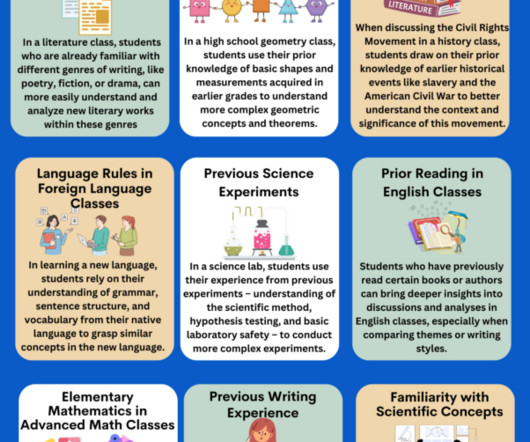What Is Prior Knowledge and Why it Matters?
Educational Technology and Mobile Learning
DECEMBER 23, 2023
Furthermore, the research by Torsten Binder and colleagues in “ Assessing prior knowledge types as predictors of academic achievement in the introductory phase of biology and physics study programmes using logistic regression ” examines the impact of different types of prior knowledge on academic achievement in biology and physics.















Let's personalize your content